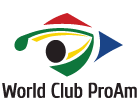Durban
Climate & Weather
Durban's temperate, sub-tropical climate is famous for its mild and sunny winters with up to 320 days of sunshine annually. Summer is the wettest season in Durban with a high level of humidity. This season lasts from November to March with temperatures often rising above 30 degrees Celsius. The apparently never-ending summers are enjoyably hot. Durban enjoys a humid subtropical climate, with very hot, humid summers and mild to warm winters. Rain is frequent during the summer months, but comes in the form of thunderstorms in the afternoons, so the sunny holiday weather is not badly affected. In fact, the storms come as a relief from the humidity and the chain lightening over the ocean is a special sight.
Restaurants & Mix / Culture
Durban's restaurants, eateries and hospitality establishments reflect the cosmopolitan diversity of South Africa's port city where a year-round summer climate lends itself to al fresco dining. Durban is a natural paradise known for its gorgeous coastline of sun-kissed beaches and subtropical climate, situated on the eastern seaboard of Africa. The City is built around one of the busiest ports in Africa and our people are our pride. The city focuses on providing visitors with a unique set of experiences that go beyond the beach and into the realm of Durban's diverse culture, urban lifestyle and scenic diversity. The City of Durban is an elegant, mature and ambitious city. It is a trendsetter in offering great lifestyle, speckled with adventure activities, blessed with natural beauty and is an astonishingly liveable city. Whether you here as a business delegate or a leisure traveler there is a warm African flavor that will capture your heart forever. Durban's rich cultural diversity is what gives it a vibrancy enjoyed by few other South African cities. The wonderful food, ceremonies and festivals of the city's Indian residents has greatly enriched Durban's cultural landscape, as has the architecture and lovely gardens, developed by the city's early European settlers.
Official Languages
There are eleven official languages in South Africa. In KwaZulu-Natal, English & Zulu are widely spoken.
Banks
Banking house are from Monday to Friday 09:00 to 15:30 and Saturday 08:30 to 11:00. Automated teller machines (ATMs) operate 24 hours a day can be found in most shopping areas.
Currency
The currency is South Africa is in Rand. Bank notes are available in R200, R100, R50, R20 & R10 and coins R5, R2, R1, 50c, 20c, 10c, 5c. There are 100c in R1.
The currency exchange rate is extremely for most international currencies, making South Africa extremely cost effective as a holiday destination.
Value Added Tax
A 14% tax is charged on most purchased goods & services. However, foreign tourists may reclaim this money on their departure from the country provided that the goods purchased exceed R250. Ask for information on arrival at the airport.
Essentials To Pack
- Light cotton clothing (shorts, short sleeve shirts)
- Hat
- Sunscreen
- Sunglasses
- Swimming costume
- Comfortable walking shoes
- Camera
- Any prescription medication that you may need









